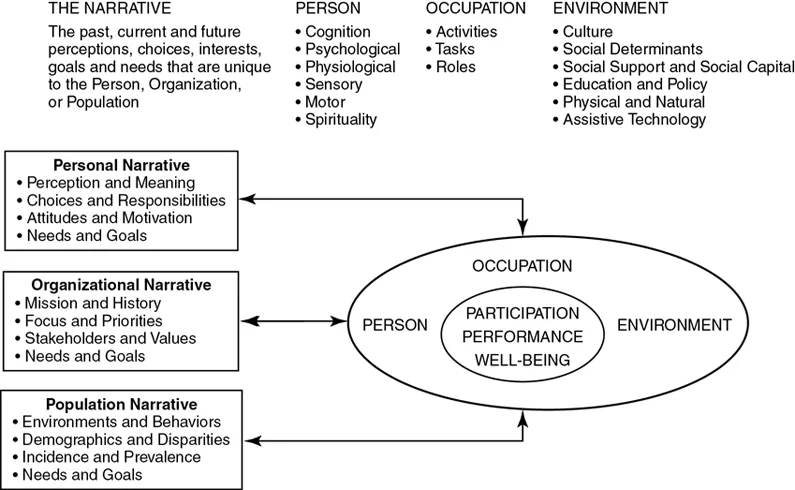
Occupational Therapy with Aging Adults
Promoting Quality of Life through Collaborative Practice
Karen Barney, Margaret Perkinson
- 528 pagine
- English
- ePUB (disponibile sull'app)
- Disponibile su iOS e Android
Occupational Therapy with Aging Adults
Promoting Quality of Life through Collaborative Practice
Karen Barney, Margaret Perkinson
Informazioni sul libro
Look no further for the book that provides the information essential for successful practice in the rapidly growing field of gerontological occupational therapy! Occupational Therapy with Aging Adults is a new, comprehensive text edited by OT and gerontological experts Karen Frank Barney and Margaret Perkinson that takes a unique interdisciplinary and collaborative approach in covering every major aspects of geriatric gerontological occupational therapy practice. With 30 chapters written by 70 eminent leaders in gerontology and OT, this book covers the entire continuum of care for the aging population along with special considerations for this rapidly growing demographic. This innovative text also covers topical issues spanning the areas of ethical approaches to treatment; nutrition and oral health concerns; pharmacological issues; low vision interventions; assistive technology supports; and more to ensure readers are well versed in every aspect of this key practice area.
- UNIQUE! Intraprofessional and interprofessional approach to intervention emphasizes working holistically and collaboratively in serving older adults.
- Case examples help you learn to apply new information to actual patient situations.
- Questions at the end of each chapter can be used for discussion or other learning applications.
- Chapter on evidence-based practice discusses how to incorporate evidence into the clinical setting.
- Chapter on ethics provides a deeper understanding of how to address challenging ethical dilemmas.
- UNIQUE! Chapter on the wide range of physiological changes among the aging patient population highlights related occupational performance issues.
- UNIQUE! Chapter on oral health explores the challenges faced by older adults.
Domande frequenti
Informazioni
Gerontological occupational therapy: Conceptual frameworks, historical contexts, and practice principles
Basic concepts and theories of old age
Evolution of gerontological concepts and theory regarding late-life activity/occupation
Current concepts and theory in occupational therapy relevant to the understanding and facilitation of late-life activity/occupation
